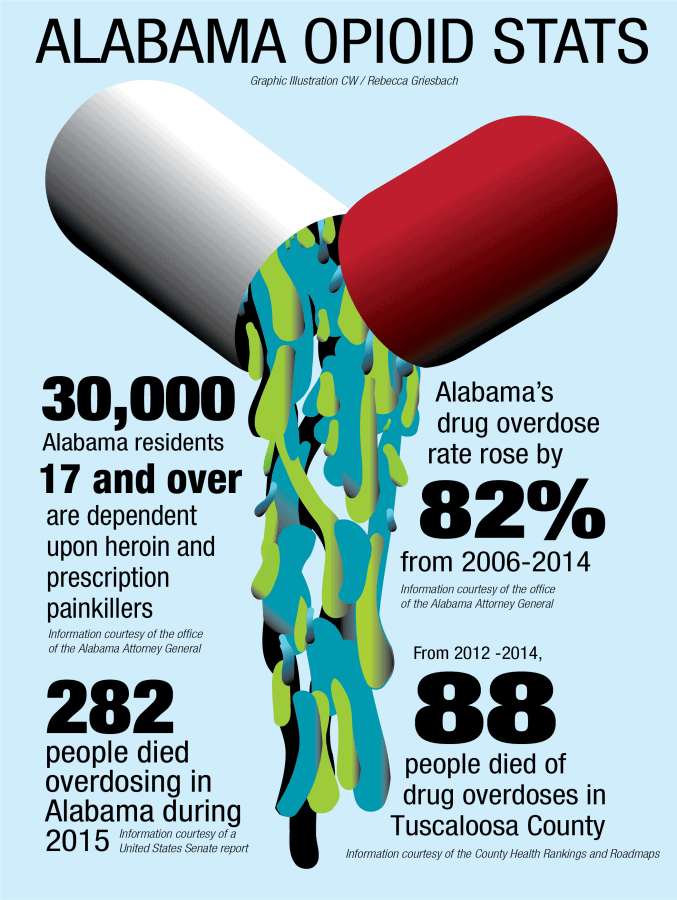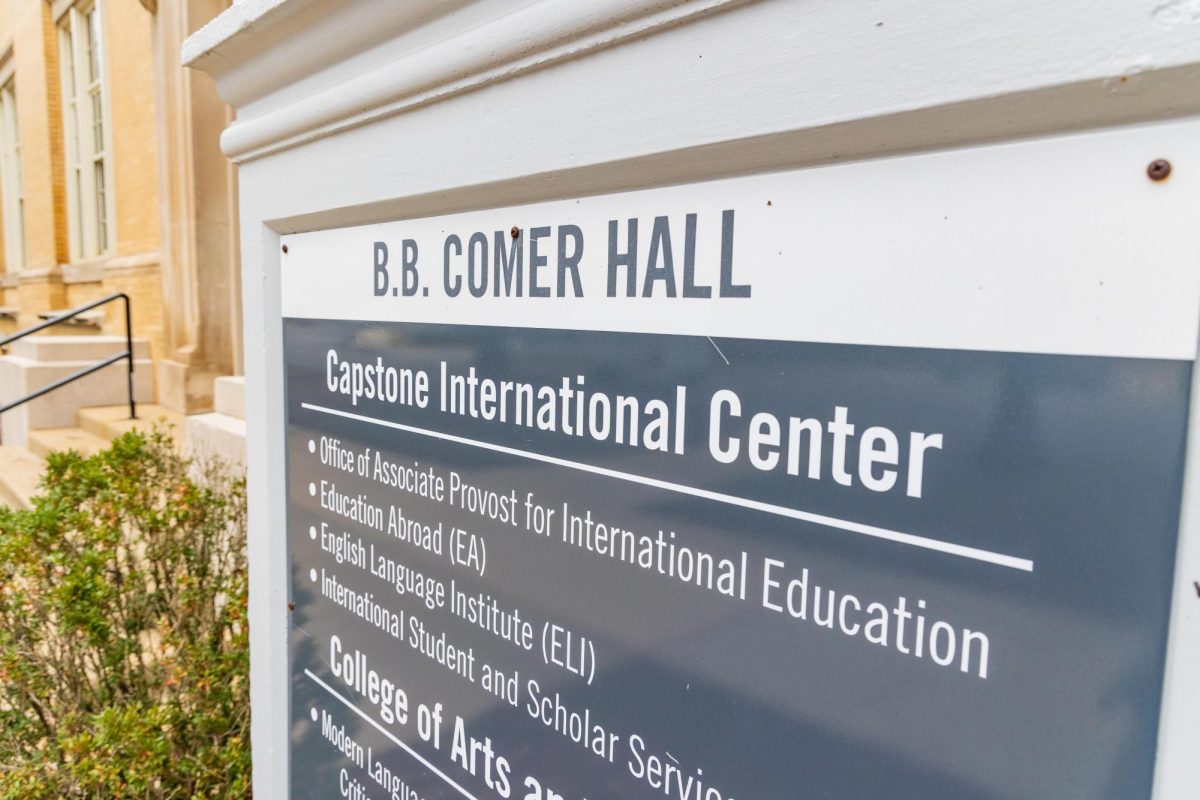Students for Opioid Solutions is trying to help minimize the problem of opioid dependency nationwide and in Tuscaloosa.
Gerald Fraas, SOS’s president and co-founder, worked with SGA senator Robert Pendley, a third-year law student, to draft Resolution R-09 encouraging working with housing and residential communities on campus and the Office of Fraternity and Sorority Life to deal with opioid overdoses on campus. The resolution encourages the distribution of the drug Naloxone throughout housing and residential communities on campus. The drug is used in response to an opioid overdose to help to stabilize the victim until they reach the hospital.
Pendley said it’s important to address this problem on the college campus because college students check so many boxes when examining the list of possible risk factors for opioid addiction such as stress, peer pressure and ease of access.
“If you look at the increased prevalence of opioid overdoses and then you look at what are the factors that lead into an overdose and leads a person to be in a position where they would abuse an opioid, then college-aged students mark the list for all of those risk factors,” Pendley said.
Alabama Attorney General Steve Marshall commented on the toll the opioid epidemic has had in the state in a press release.
“The opioid epidemic has devastated Alabama families, leaving a trail of addiction and death winding through every community of this state,” Marshall said. “Alabama ranks first in the nation for the number of painkiller prescriptions per capita.”
A Kaiser Family Foundation report found doctors in Alabama prescribe 142.9 opioid pain relievers per 100 persons, compared to the national rate of 82.5 per 100 persons.”
The Tuscaloosa Police Department said due to a database failure, they didn’t have information on the opioid epidemic in Tuscaloosa at this time.
Fraas, a junior majoring in political science and economics, said the Tuscaloosa branch of SOS has been working on increasing outreach at the University.
“Our impact presently stands to change school administrative policy,” Fraas said. “We have expanded into medical supply distribution.”
The second major outreach program that SOS has in mind is a medication disposal system that will be beta tested with fraternities at The University of Alabama before possibly expanding. If it succeeds, they will expand the program to sororities and then nationwide. The program relies on an honor system where people with a prescription are expected to destroy any pills they don’t use, so no one else can abuse them. Fraas said using the medication disposal system also eliminates the possibility of destroying plumbing by having to flush pills.

Fraas said he believes the nation is dealing with this epidemic due to big pharmaceuticals and overprescription of medications.
“What the often unspoken part of the opioid epidemic is is that it’s a direct result of years of pharmaceuticals being advertised as the solve-all for issues and American doctors being convinced that they have to fully address a patient’s pain when they are experiencing it,” he said.
Hunter Bradford, a junior majoring in political science and president of the Kappa Sigma fraternity on campus, said the medication disposal system will be able to benefit his fraternity and other fraternities and sororities in the future, should the project be expanded.
“Hopefully it can stop some sort of an opiate whether it be a painkiller or fentanyl or something like that getting into the hands of somebody that can ultimately use it in their own life through a drug overdose,” Bradford said. “If one person [uses the disposal system], that’s ultimately a success.”
Bradford said he thought the system would be useful because of the sense of anonymity that it provides.
“We have these disposal bags set up in a place in our house where people can come get them so that basically you’re not being a further contributor to the opioid crisis ongoing,” Bradford said. “We have [the medication disposal system] set up in the main foyer underneath the composite.”
Fraas said he’s passionate about this organization because of the severity of the problem.
“We have a lot of addicts,” he said. “We are overusing these medications. We need to address it now before it continues to take more and more lives.”









